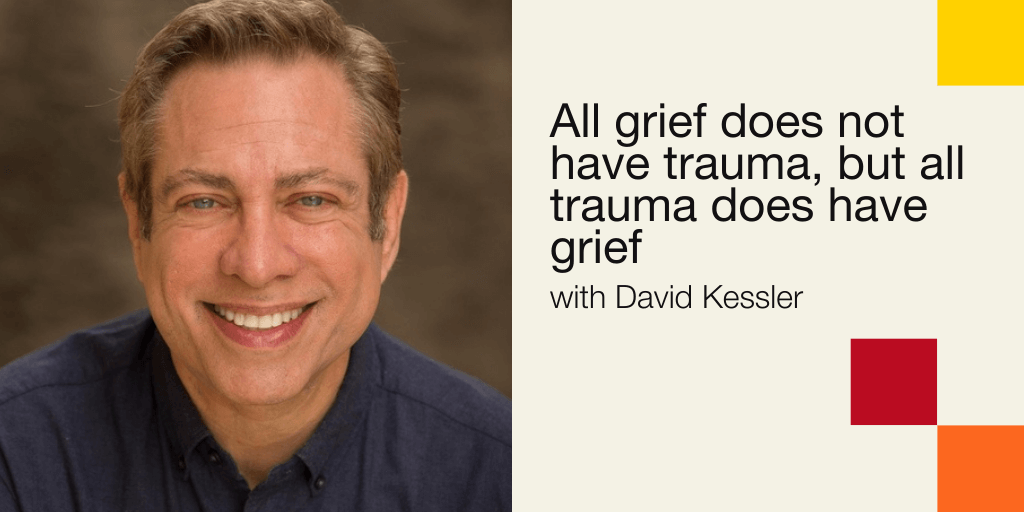
All grief does not have trauma, but all trauma does have grief with David Kessler
‘All grief does not have trauma, but all trauma does have grief with David Kessler’ blog article was written by Lauren Thomas, Director of International Childhood Trauma Conference and Youth Participation and Engagement Senior Project Lead at Australian Childhood Foundation.
For all of us who work with, care for and support people who have experienced developmental or complex trauma, grief is present yet often unnamed component of trauma work.
Last week, I had the privilege of talking with David Kessler ahead of his presentations at next year’s 2025 International Childhood Trauma Conference. David is one of the world’s foremost experts on grief and loss, and he is the author of six books, including his latest bestselling book, Finding Meaning: The Sixth Stage of Grief.
Over the course of our conversation, David shared both how his personal and professional journeys had combined to develop his understanding of grief. David’s personal experience with abuse, neglect, traumatic loss and witnessing a mass shooting while his mother was dying in a hospital put him on his path of healing for himself and others. He spoke of the relief he felt when he first learnt that he didn’t have to feel broken forever, and that there were tools and strategies for recovery.
The professional world of grief has also changed so much over the course of David’s career;
My first teacher was Elisabeth Kübler-Ross, who introduced the stages of dying. Then, her and I, in our book adapted them for stages of grief and we made sure – on page one – to let everyone know that they are not linear! There is no one right way to do grief. There is no one right model.
I think now in the professional world we are recognising more and more that not only is there many models, people in grief don’t ask which model is right for them, they say I need help with this pain.
David’s work and approach today encourages people to leave the models behind and meet people where they are with their day-to-day pain.
Throughout our lives, the body is our intermediary for the world; it is how we connect to our environment and others.
He has observed that there are so many things that intersect in our grief. Some people do have grief. And some people do have trauma. And yet we also know there is traumatic grief.
Something he shared that has stayed with me since is the statement, “All grief does not have trauma, but all trauma does have grief.”
He went on to say that practitioners are beginning to see that we have to address all these areas; to think about the collective grief, the ancestral grief, the grief that we are experiencing with multiple losses, we have to see them all and understand them to meet the person exactly where they are.”
It was a rich conversation, and I was left feeling grateful that those attending the Conference next year will have the chance to dig deeper and learn more from both David’s lived experience and learned expertise.
There will be three opportunities for delegates to learn from David at the International Childhood Trauma Conference in all;
- 60-minute Plenary Session on ‘Releasing the pain of grief and finding meaning’ on August 21
- 90-minute Keynote on ‘Traumatic grief, guilt, transgenerational and collective grief’ on August 21
- Co-presented half-day masterclass with Paul Denniston on “Mind and body tools and techniques for adults and children in techniques”
David has also kindly agreed to some pre-programmed book signing times, so bring copies of his books so that you can meet him in person and have him pen an inscription.
Watch the full interview with David here.
You can follow David’s work on the following platforms:
Register for the 2025 International Childhood Trauma Conference
We are looking forward to welcoming you to our fifth Conference, in which we will gather to share practice, knowledge, and wisdom about how to transform the lives of those who have experienced childhood trauma. Our focus on connection and healing in this conference recognises the profound impact of connection and relationship to self, others, place, community, and Country in healing process.
